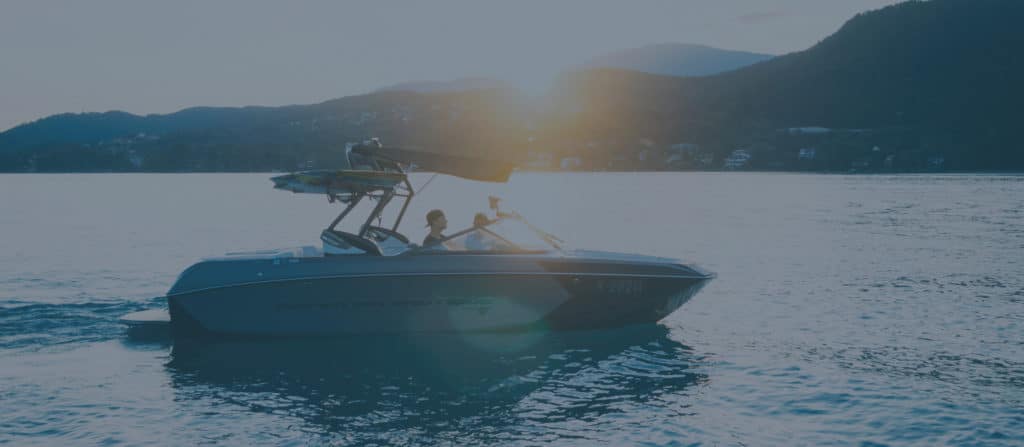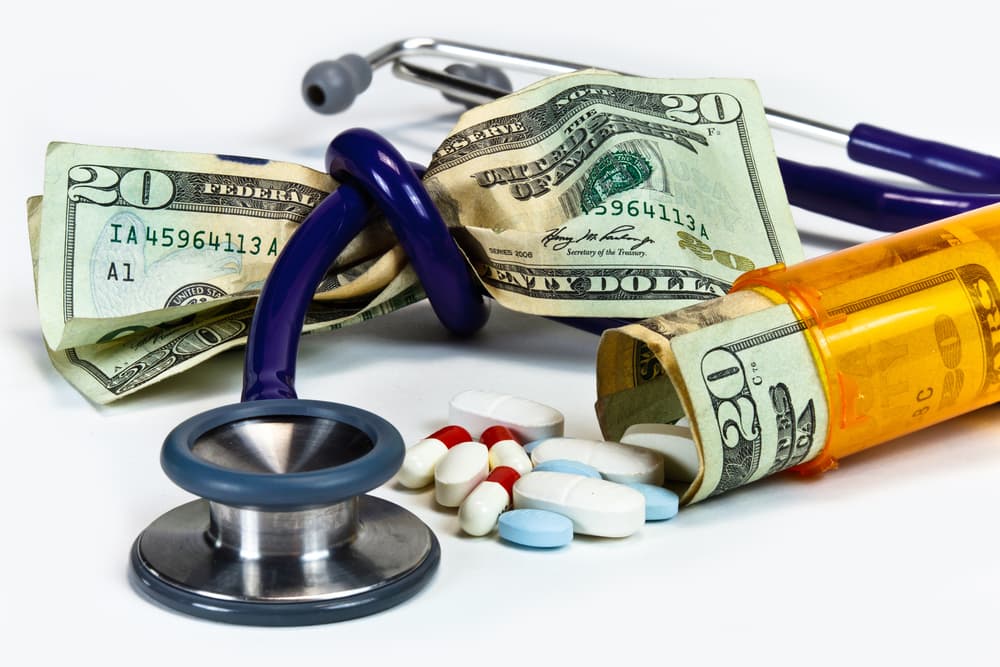A beautiful day on the water can turn frightening in an instant. Boat accidents happen unexpectedly, often leaving people with serious injuries and many questions.
Your immediate focus is on getting medical help and healing. Soon, however, financial worries can begin to surface. You might wonder how you will pay for medical care or cover your lost wages.
This article will help you learn about What Compensation Can You Recover for a Boating Accident Injury? We will explore the different types of damages you can claim.
Types of Financial Losses from Boat Accidents
Boat accidents can lead to a wide range of financial setbacks. Some costs appear right away, like the ambulance ride or emergency room visit. Your boat might need significant repairs, or it could be a total loss.
These immediate expenses are often just the beginning. The true financial toll can unfold over weeks, months, or even years, especially if injuries are severe. The disruption to your life can extend far beyond initial medical bills and property damage.

You might be unable to work for a period, leading to lost income your family depends on. If injuries require long-term treatment or rehabilitation, those costs add up. Even replacing personal items lost in the accident, like phones, fishing equipment, or other valuables, contributes to the financial strain.
Recognizing all these potential losses is the first step toward seeking fair recompense. Here are some common financial losses people face after boat accidents:
- Emergency medical transport (ambulance or airlift)
- Hospital stays and admission fees
- Surgical procedures and follow-up appointments
- Prescription medications and medical supplies
- Physical therapy or rehabilitation services
- Costs to repair or replace the damaged boat
- Replacement of personal property lost or damaged in the accident
- Towing and storage fees for the damaged vessel
Recovering Your Medical Expenses
Medical bills are frequently the most significant financial consequence of a boat accident. These expenses begin with the immediate care you receive after the incident.
This could involve emergency services at the scene, transportation to a hospital, and the costs associated with an emergency room visit. If your injuries are serious, you might require hospital admission, surgeries, and consultations with various medical practitioners. All these services generate substantial bills.

It is also imperative to consider future medical needs. Some injuries sustained in boat accidents require ongoing treatment long after you have left the hospital. This could include regular physical therapy sessions to regain mobility, occupational therapy to relearn daily tasks, or counseling for emotional distress.
You might need assistive devices like crutches or a wheelchair, or even modifications to your home to accommodate a new disability. A thorough assessment of all past, present, and projected future medical costs is necessary to ensure you seek adequate funds.
Initial Treatment Costs
Your immediate medical care is the foundation of your medical expense claim. This includes every bill from the moment of injury, such as:
- Emergency Room Visits: Charges for facility use, doctor consultations, and any immediate procedures.
- Hospital Admission: Costs for your room, nursing care, medications administered, and specialist fees during your stay.
- Diagnostic Tests: Fees for X-rays, MRIs, CT scans, and other tests used to identify your injuries.
Ongoing Care Needs
Many boat accident injuries necessitate continued care for proper recovery. These can include:
- Rehabilitation Services: Physical, occupational, or speech therapy sessions.
- Specialist Follow-Ups: Appointments with orthopedic surgeons, neurologists, or other specialists.
- Assistive Devices: Costs for wheelchairs, walkers, braces, or other necessary equipment.
Future Medical Projections
If your injuries are permanent or require long-term management, your claim should account for these future expenses.
This often involves:
- Life Care Plans: A detailed report outlining anticipated medical needs and associated costs for the remainder of your life.
- Expert Medical Opinions: Statements from doctors regarding the likelihood and cost of future surgeries, treatments, or medication.
- Inflationary Considerations: Factoring in the rising cost of healthcare over time.
Compensation for Lost Income and Earning Capacity
An injury from a boat accident can directly affect your ability to work and earn a living. If you are unable to return to your job while you recover, you will lose income. This lost pay can create immediate financial pressure, making it difficult to cover regular household expenses, let alone new medical bills.
The lost wages can be calculated from the time of the accident until you are medically cleared to return to work. Sometimes, injuries are so severe that they permanently change your ability to perform a job. You might be able to work, but not in the same capacity or at the same pay rate as before the accident.
This is known as lost earning capacity. It represents the difference between what you would have earned had the accident not occurred and what you can earn now. Securing funds for these losses is vital for your long-term financial stability.
Non-Economic Damages: The Personal Toll
Boat accidents inflict more than just financial harm. They also cause significant personal suffering and a decline in your quality of life. These non-financial losses are known as non-economic damages.
While money cannot erase pain or restore your life to exactly how it was before the accident, compensation for these damages acknowledges the very real human cost of the incident.
Proving these types of damages often involves personal testimony, statements from family and friends, and sometimes psychological evaluations, to show the extent of your suffering.
Consider these common types of non-economic damages:
- Pain and Suffering: This covers the physical pain and discomfort you endure from your injuries, both at the time of the accident and ongoing.
- Emotional Distress: This includes feelings like fear, anxiety, depression, and post-traumatic stress disorder (PTSD) that can arise after a traumatic event like a boat accident.
- Loss of Enjoyment of Life: If your injuries prevent you from participating in activities, hobbies, or social engagements that you previously enjoyed, you may receive funds for this loss.
- Disfigurement or Scarring: Permanent scars or physical disfigurement can cause embarrassment and emotional distress, warranting recompense.
- Mental Anguish: This relates to severe mental suffering, worry, grief, or despair resulting from the accident or your injuries.
What if a Loved One Was Fatally Injured? (Wrongful Death Claims)
The loss of a loved one in a boat accident is an unimaginable tragedy. Beyond the profound emotional grief, families often face unexpected financial burdens and the loss of companionship and support.
In such devastating situations, eligible surviving family members may be able to file a wrongful death claim. This type of legal action seeks to hold the responsible party accountable and secure financial recompense for the family's losses. The specifics of who can file and what can be recovered are defined by state law.
Loss of Financial Support
This part of the claim considers the earnings and benefits the deceased would have provided to the family.
It can include:
- Lost wages and income over their expected lifetime.
- Loss of benefits like health insurance or retirement contributions.
- The value of household services the deceased performed.
Loss of Companionship and Consortium
This acknowledges the intangible, yet deeply valuable, personal losses, such as:
- Loss of love, affection, society, and companionship for a spouse or partner.
- Loss of guidance, nurture, and support for children.
- Mental anguish and sorrow experienced by the surviving family members.
Funeral and Burial Expenses
The claim can also cover the direct costs associated with the death, including:
- Costs for the funeral service and memorial.
- Expenses for burial or cremation.
- Related costs like travel for family members to attend services.
Proving Your Losses for Fair Compensation
To receive money for your injuries and other losses after a boat accident, you generally need to provide clear proof to the at-fault party's insurance company or to a court.
Insurance companies will not simply take your word for the extent of your damages. They require thorough documentation to support every aspect of your claim, from medical treatments to lost wages and property damage. Building a well-documented case is essential.

Keeping detailed records from the very beginning can significantly strengthen your position. This includes saving all medical bills, reports, and receipts. Track your missed work days and gather pay stubs. Take photographs of your injuries and any property damage.
The more evidence you can provide, the better your chances of demonstrating the true extent of your losses and securing a fair settlement or award. This careful collection of information helps show exactly how the boat accident has affected your life.
Here is a list of important documents and information to gather:
- Medical Records: This is perhaps the most important set of documents. Include all doctor’s notes, hospital discharge papers, bills from every provider (hospital, doctors, therapists, labs), prescription receipts, and records of any medical equipment purchased.
- Proof of Income: To claim lost wages, you will need pay stubs from before the accident, W-2 forms or tax returns, and potentially a letter from your employer confirming your rate of pay, hours worked, and time missed due to the accident.
- Photographs and Videos: Pictures or videos of your injuries taken at various stages of healing can be very compelling. Also, include photos of the accident scene, the boats involved, and any damaged property.
- Repair Estimates and Receipts: For damage to your boat or other personal property (like electronics or fishing gear), obtain detailed repair estimates. If items are replaced, keep the receipts.
- Personal Journal or Diary: It can be helpful to keep notes about how your injuries affect your daily life. Document your pain levels, activities you can no longer do, emotional struggles, and doctor appointments. This will provide a personal account of your experience.
How Negligence Affects Your Claim
In most boat accident cases, you must show that another party’s carelessness or negligence caused or contributed to the accident and your injuries to recover money.
Negligence means that someone failed to act with reasonable care, resulting in harm. Simply being injured in an accident does not automatically mean you are entitled to funds. You need to establish who was at fault.
Boating negligence can manifest in many ways. An operator might be distracted, speeding, or operating the vessel while impaired by alcohol or drugs. Failing to have proper safety equipment, ignoring navigation rules, or not keeping a proper lookout are other common examples of negligent behavior on the water. A Boating accident lawyer can help identify these failures and pursue justice on behalf of injured victims.
An investigation into the circumstances of the accident is often necessary to determine how it happened and identify the responsible parties. This information is key to building a successful compensation claim.
Common forms of negligence in boat accidents include:
- Operator Inattention: Distractions like using a cell phone, talking to passengers instead of watching where the boat is going, or general lack of focus.
- Excessive Speed: Operating the boat too fast for the conditions, such as in crowded areas, during bad weather, or near other vessels or swimmers.
- Boating Under the Influence (BUI): Operating a boat while impaired by alcohol or drugs significantly slows reaction time and impairs judgment.
- Lack of Proper Safety Equipment: Failing to have enough life jackets for everyone on board, or not having required safety gear like fire extinguishers or signaling devices.
- Violating Navigation Rules: Ignoring established "rules of the road" on the water, such as those concerning right-of-way, passing, or operating in designated channels.
- Improper Lookout: Failing to assign someone to watch for other boats, swimmers, debris, or hazards, or the operator failing to maintain an adequate lookout themselves.
Recovering after a boat accident involves understanding your rights and the types of financial help available.
Empower Yourself with Experienced Legal Support

If you have been injured in a boat accident in Texas and have questions about what compensation you might be able to recover, please know that help is available. The team at Lorenz & Lorenz, PLLC, is dedicated to assisting Texans through difficult times.
We offer a free consultation to discuss your specific situation and explain your options. To speak with someone who can help, call us at (512) 477-7333.